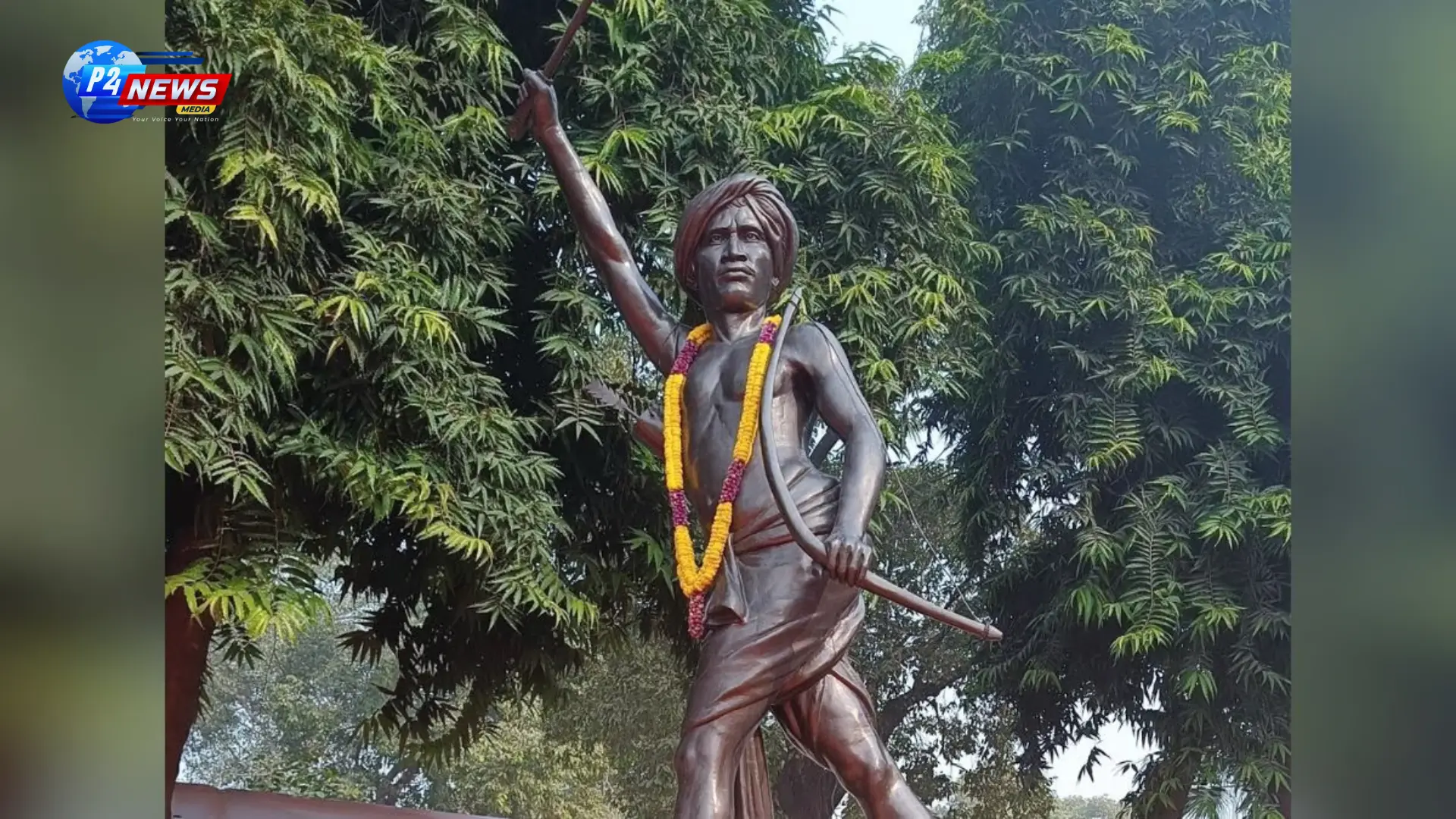Union Minister Manohar Lal Khattar made a significant announcement during an event in Delhi marking the 150th birth anniversary of Bhagwan Birsa Munda, where a statue was unveiled by Union Home Minister Amit Shah.
Union Minister Manohar Lal Khattar made a significant announcement during an event in Delhi marking the 150th birth anniversary of Bhagwan Birsa Munda, where a statue was unveiled by Union Home Minister Amit Shah.
Sarai Kale Khan ISBT Chowk in Delhi has been renamed in honor of the legendary tribal freedom fighter, Birsa Munda. The renaming comes as part of a broader initiative to recognize and celebrate India's rich history and heritage, especially honoring those who played pivotal roles in the country’s struggle for independence.
Birsa Munda, a prominent leader of the Indian tribal community, is remembered for his courageous leadership during the Munda Rebellion in the late 19th century. His fight against British colonial rule and his advocacy for the rights of tribal communities have left an indelible mark on India's freedom movement. Known as "Bhagwan Birsa Munda" by his followers, he is revered as a symbol of resistance and empowerment for indigenous people.
The decision to rename the chowk reflects the government's commitment to preserving and promoting the memory of such unsung heroes. This change is expected to not only raise awareness of Birsa Munda’s contribution but also inspire future generations to connect with the nation's history and the struggles of its people. The event marks a moment of pride for tribal communities across India and further highlights the importance of acknowledging diverse contributions to the country's freedom.
Birsa Munda’s legacy continues to inspire movements for the upliftment and protection of tribal rights. With the renaming of Sarai Kale Khan ISBT Chowk, Delhi pays tribute to his unparalleled contributions to India's independence and the fight for social justice.
The renaming is part of a larger national push to honor leaders from tribal communities who have historically been marginalized in mainstream narratives of India’s independence movement. Birsa Munda’s legacy, in particular, is symbolic of the tribal resistance to British imperialism, a reminder that freedom came at a cost for all sections of society, not just the mainstream population. His vision for an independent and self-reliant tribal community still resonates today, especially as issues like land rights and social justice continue to dominate discussions in tribal areas.
The choice of Sarai Kale Khan ISBT Chowk for this renaming is significant, considering its location at a major transport hub in Delhi, which connects several regions. The location’s high visibility makes it an ideal spot to pay homage to a leader whose impact transcends geographical boundaries. It is expected that the change will draw attention not only to Munda’s legacy but also to the ongoing challenges faced by tribal communities across India.
This move by the Delhi government is also seen as a step toward greater inclusion of India’s indigenous history in the public consciousness. The government has emphasized the importance of such steps in ensuring that historical figures like Birsa Munda are given the recognition they deserve, not only in terms of commemorations but also through policy initiatives aimed at improving the lives of tribal people.
Across India, there has been a growing recognition of tribal leaders in recent years, with statues, roads, and landmarks named after figures like Munda and others who have shaped India's history in profound ways. The decision to rename the chowk serves as a reminder that the contributions of tribal communities, though often overlooked, are integral to the country's journey to independence.
As India continues to celebrate its diverse heritage, the renaming of Sarai Kale Khan ISBT Chowk is a poignant reminder of the ongoing struggle for tribal rights. Birsa Munda, who fought not only for freedom but also for the social, cultural, and economic upliftment of his community, continues to be a source of inspiration. This acknowledgment is seen as a step forward in ensuring that the struggles and achievements of tribal communities are recognized at the highest levels of governance and society.
The renaming is expected to bring more attention to the needs of the tribal population, encouraging policymakers and citizens alike to reflect on the progress made and the work still to be done in achieving equality for all.
Like
Dislike
Love
Angry
Sad
Funny
Pray
9th Ayurveda Day in Melbourne: A Celebration of Ayurvedic Innovations and Global Health Impact
November 10, 2024Australia’s Terror Alert Jumps to ‘Probable’: What You Need to Know About the Increased Risk
August 05, 2024🍪 We Value Your Privacy and Experience Hi there! We use cookies to enhance your browsing experience, provide personalized content, and analyze site traffic. By continuing to use our site, you consent to our use of cookies.







Comments 0